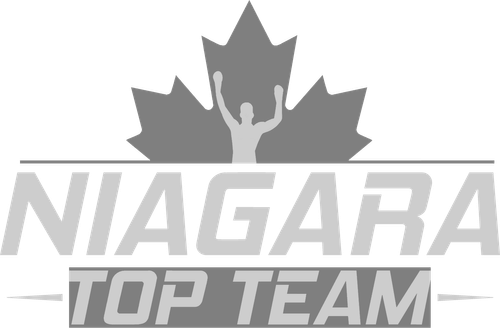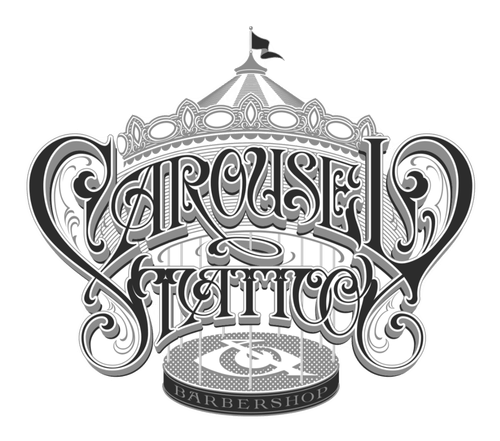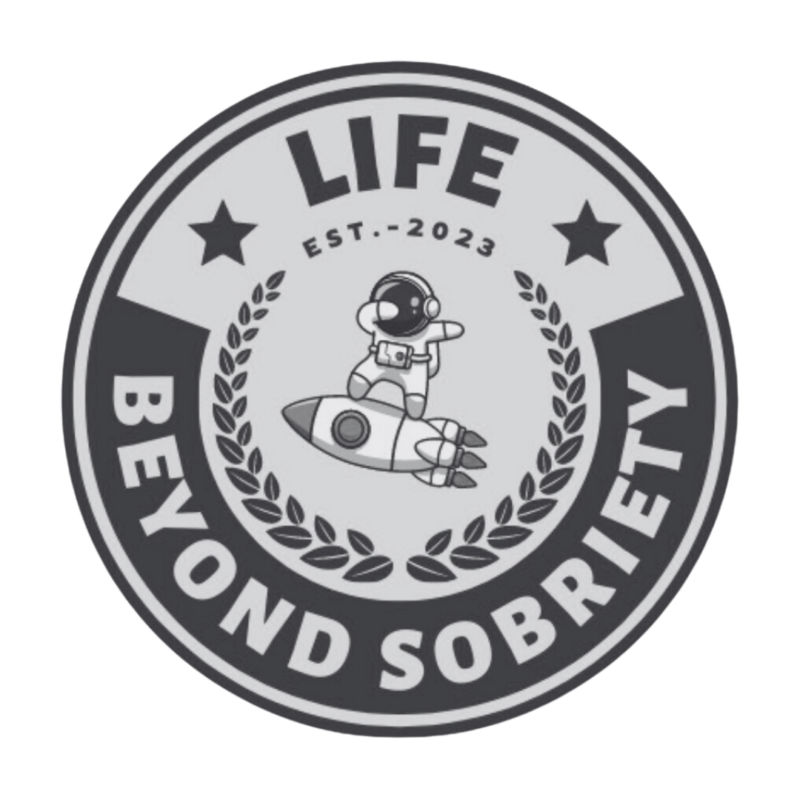Exploring Rehab Centers in Ontario
When searching for the best rehab centers in Ontario Canada, it’s important to consider various factors such as location, treatment approaches, and the overall environment. Among these centers, a holistic and personalized approach to recovery is becoming increasingly popular.
One standout facility offering such comprehensive treatment is Twelve Mile Recovery, located in the serene landscapes of Niagara, Ontario. Owned and operated by individuals with lived experiences in recovery, they provide a unique perspective on overcoming addiction.
With a focus on healing not just the physical manifestations of addiction, Twelve Mile Recovery addresses mental, emotional, and spiritual facets of the recovery journey, fostering a more robust path to sobriety.
Holistic Approaches to Addiction Treatment
Rehabilitation centers increasingly embrace holistic methodologies to treat addiction, aligning with the belief that recovery transcends mere abstinence from substance use. Holistic treatments are pivotal in ensuring that patients heal comprehensively from addiction. At Twelve Mile Recovery, the integration of martial arts, yoga, and mindfulness exemplifies this shift. These activities are designed to cultivate resilience and emotional regulation, essential in the journey to recovery.
Such practices are complemented by traditional therapeutic methods like cognitive-behavioral therapy, which focuses on altering harmful thinking patterns. This integration provides a balanced approach, enabling individuals to engage with their recovery on multiple levels.
Incorporating mindfulness and yoga helps clients forge a deeper connection with their inner selves, facilitating emotional and spiritual growth–a crucial element in the recovery process. By emphasizing holistic healing, Twelve Mile Recovery offers a nurturing environment aiding sustainable sobriety.
The Role of Personal Experience in Recovery
Personal experiences are invaluable in crafting effective addiction treatment programs. At Twelve Mile Recovery, every team member has firsthand experience with addiction and recovery. This shared journey creates a unique bond and trust between staff and clients, essential for effective treatment.
Clients often report feeling understood and supported in a way they haven’t experienced before. This empathy and relatability can significantly enhance the therapeutic process, promoting engagement and trust between client and counselor. Jo and Chris, key figures at Twelve Mile Recovery, are particularly noted for their compassionate approach, providing a safe and judgment-free environment.
Combining Traditional and Modern Therapies
Integration of both traditional and modern therapies is critical in formulating a comprehensive addiction treatment plan. At Twelve Mile Recovery, evidence-based practices like cognitive-behavioral therapy are used alongside modern therapies such as art and music therapy, offering patients diverse avenues for expression and reflection.
Physical wellness activities, including martial arts, complement these therapies by instilling self-discipline and fostering mental resilience. Such a blend ensures that clients receive tailored treatment plans catering to their unique needs, promoting overall well-being and encouraging long-term recovery.
This combination underscores the center’s commitment to personalized care, recognizing the multifaceted nature of addiction. By uniting these therapies, Twelve Mile Recovery creates a comprehensive treatment environment aiding deep, meaningful changes in clients’ lives.
Trauma-Informed Care and its Importance
Understanding the significant impact trauma has on individuals struggling with addiction is crucial. Trauma-informed care acknowledges past trauma and its role in current addictive behaviors. Twelve Mile Recovery employs a trauma-informed approach, which is vital for effective treatment.
This approach ensures that all therapeutic interactions are sensitive to the trauma history of clients, promoting safety and empathy. By addressing these underlying issues, Twelve Mile Recovery helps clients break free from the cycles of addiction rooted in trauma.
Recognizing and treating trauma leads to greater healing opportunities, empowering individuals to build resilience and forge healthier life paths. This care style has proven to be profoundly impactful in facilitating sustained recovery.
Inpatient vs. Virtual Treatment Programs
Choosing between inpatient and virtual treatment programs is a pivotal decision in the recovery journey. Twelve Mile Recovery offers both, ensuring that clients can choose what best serves their needs and circumstances.
Inpatient programs provide a structured environment essential for those needing intensive care and constant support. These programs offer immersive experiences, allowing clients to focus solely on recovery without external distractions.
Conversely, virtual treatment programs afford flexibility and are ideal for those who cannot commit to residential care due to responsibilities such as work or family. Virtual programs maintain an element of support while allowing clients to continue with their daily lives.
Importance of Peer Support in Recovery
Peer support plays a significant role in the recovery process. At Twelve Mile Recovery, group therapy sessions and peer interactions form the backbone of their treatment programs. Engaging with others who understand the challenges of addiction fosters a sense of community and belonging.
These interactions not only provide emotional support but also allow individuals to learn from each other’s experiences. Shared stories of struggle and triumph reinforce the belief that recovery is possible for everyone.
Peer support grounds clients in a community where they feel understood, which is crucial for maintaining motivation and commitment to their recovery journey.
Testimonials and Success Stories
Testimonials from individuals who have undergone treatment at Twelve Mile Recovery highlight the profound impact of the center’s approach. Clients repeatedly praise the caring and empathetic staff, emphasizing the safe space created for recovery.
Leah Marie Radoman notes the judgment-free environment and invaluable support received, while Michael Laughlin and Robyn O’Hara express gratitude for the dedication shown by the team. These personal stories underscore the importance of creating a supportive and nurturing environment in achieving recovery success.
Such testimonials reaffirm the efficacy of Twelve Mile Recovery’s holistic, trauma-informed approach, attesting to the lasting change it facilitates in clients’ lives.
How to Take the Next Step in Recovery
For those seeking help with addiction, taking the first step can be daunting. Twelve Mile Recovery stands ready to support individuals on this pivotal journey. By providing personalized treatment plans and varied forms of support, the center ensures a well-rounded approach to recovery.
Whether through intervention services, inpatient treatment, or virtual programs, Twelve Mile Recovery offers a path tailored to each individual’s unique needs. This personalized attention is crucial in fostering lasting change and encouraging clients to embrace a healthier, more fulfilling life.
How much does rehab cost in Ontario?
When considering rehab in Ontario, costs can vary significantly based on the type of treatment and amenities provided. Generally, private facilities may charge anywhere from $5,000 to upwards of $20,000 for a 30-day program. It’s imperative to note that these costs reflect the comprehensive nature of care, including personalized therapy sessions, holistic activities, and 24/7 support. At Twelve Mile Recovery, we offer tailored programs designed to fit your unique needs, which can affect pricing. Understanding the investment in your health can feel overwhelming, but remember, it’s about securing a healthier future. If budget concerns arise, don’t hesitate to reach out to us for advice on available financial support or payment plans.
What is the wait time for rehab in Ontario?
Wait times for rehab in Ontario can differ greatly depending on the facility and the type of treatment required. Publicly funded programs often have longer wait times, potentially several weeks or even months. However, private centers like Twelve Mile Recovery frequently offer more immediate openings. We understand that addressing addiction requires timely intervention, and our team strives to accommodate new clients as swiftly as possible. Don’t let the fear of waiting deter you from seeking help. Reach out, and we can discuss your needs and evaluate the best timeline for starting your recovery journey.
What is the success rate of rehab in Canada?
The success rate of rehab in Canada depends on various factors, including the type of treatment, individual commitment, and the support systems in place post-treatment. A study in the Canadian Journal of Psychiatry suggests that a combination of holistic and evidence-based approaches significantly increases long-term recovery success. At Twelve Mile Recovery, our approach integrates cognitive-behavioral therapy, mindfulness, and peer support, which, when paired with a personalized recovery plan, enhances the likelihood of sustained sobriety. Remember, success is not just measured by abstinence but by the quality of life improvements. We encourage you to consider your own goals and how we can support you in reaching them.
Is rehab covered by OHIP in Ontario?
OHIP does cover some addiction treatment services in Ontario, particularly those offered through public healthcare providers. However, private facilities usually require out-of-pocket payment or private insurance. At Twelve Mile Recovery, we aim to make our services as accessible as possible. While OHIP may not directly cover private rehab, discussing your coverage options with your insurance provider might open up alternative funding avenues. Our team is here to assist you with any queries regarding insurance and financial support, ensuring you have all the information you need to make an informed decision about your care.
What are the benefits of a holistic approach to rehab?
Adopting a holistic approach to rehab, as practiced at Twelve Mile Recovery, addresses the multifaceted nature of addiction. Holistic therapies–such as yoga, mindfulness, and martial arts–complement traditional methods to heal mind, body, and spirit. They promote emotional resilience, mental clarity, and physical health, all of which are crucial for sustainable recovery. Engaging in activities that foster self-discipline and emotional regulation equips individuals to handle challenges beyond initial treatment. Picture integrating mindfulness into your daily routine, helping manage stress and reduce cravings. This comprehensive care approach empowers long-lasting change, nurturing not just abstinence, but overall well-being.
How is trauma-informed care implemented in rehab centers?
Trauma-informed care is crucial in rehab settings, as it acknowledges the profound impact trauma has on addiction. At Twelve Mile Recovery, we adopt this approach by creating a safe and empathetic environment where clients feel understood and respected. Our team, with lived recovery experiences, ensures that therapeutic interventions are sensitive to each individual’s trauma history. This care model promotes healing by addressing root emotional wounds. Imagine walking into a facility where you feel genuinely seen and supported; that safe space allows for deeper engagement and healing. We’re committed to helping clients build resilience and healthier coping mechanisms to thrive beyond rehab.
Can I choose between inpatient and virtual programs at Twelve Mile Recovery?
Yes, at Twelve Mile Recovery, we offer both inpatient and virtual treatment programs to accommodate diverse needs and circumstances. Inpatient programs provide immersive, round-the-clock support, ideal for individuals requiring intensive care free from external distractions. Virtual programs, however, offer flexibility, allowing clients to maintain daily responsibilities while accessing essential support remotely. This adaptability ensures you receive the right level of care without compromising your life commitments. Consider which environment might best support your recovery goals, and know that our team is here to guide you in making that critical decision.
Resources
- Centre for Addiction and Mental Health (CAMH) – CAMH is Canada’s largest mental health teaching hospital and one of the world’s leading research centers in its field.
- National Institute on Drug Abuse (NIDA) – NIDA’s mission is to lead the nation in bringing the power of science to bear on drug abuse and addiction.
- Substance Abuse and Mental Health Services Administration (SAMHSA) – SAMHSA is the agency within the U.S. Department of Health and Human Services that leads public health efforts to advance the behavioral health of the nation.
- National Institute of Mental Health (NIMH) – NIMH is the lead federal agency for research on mental disorders.
- Centers for Disease Control and Prevention (CDC) – CDC is the leading national public health institute of the United States.












